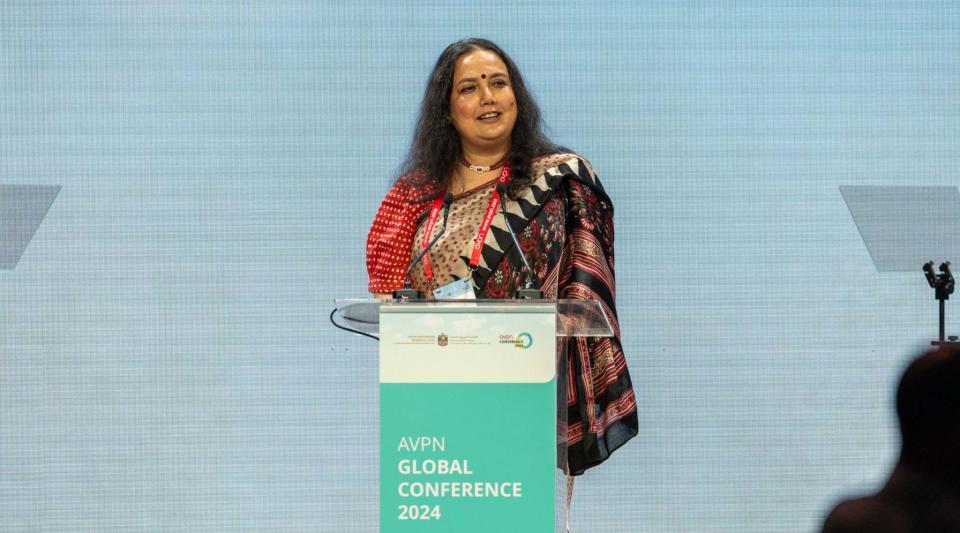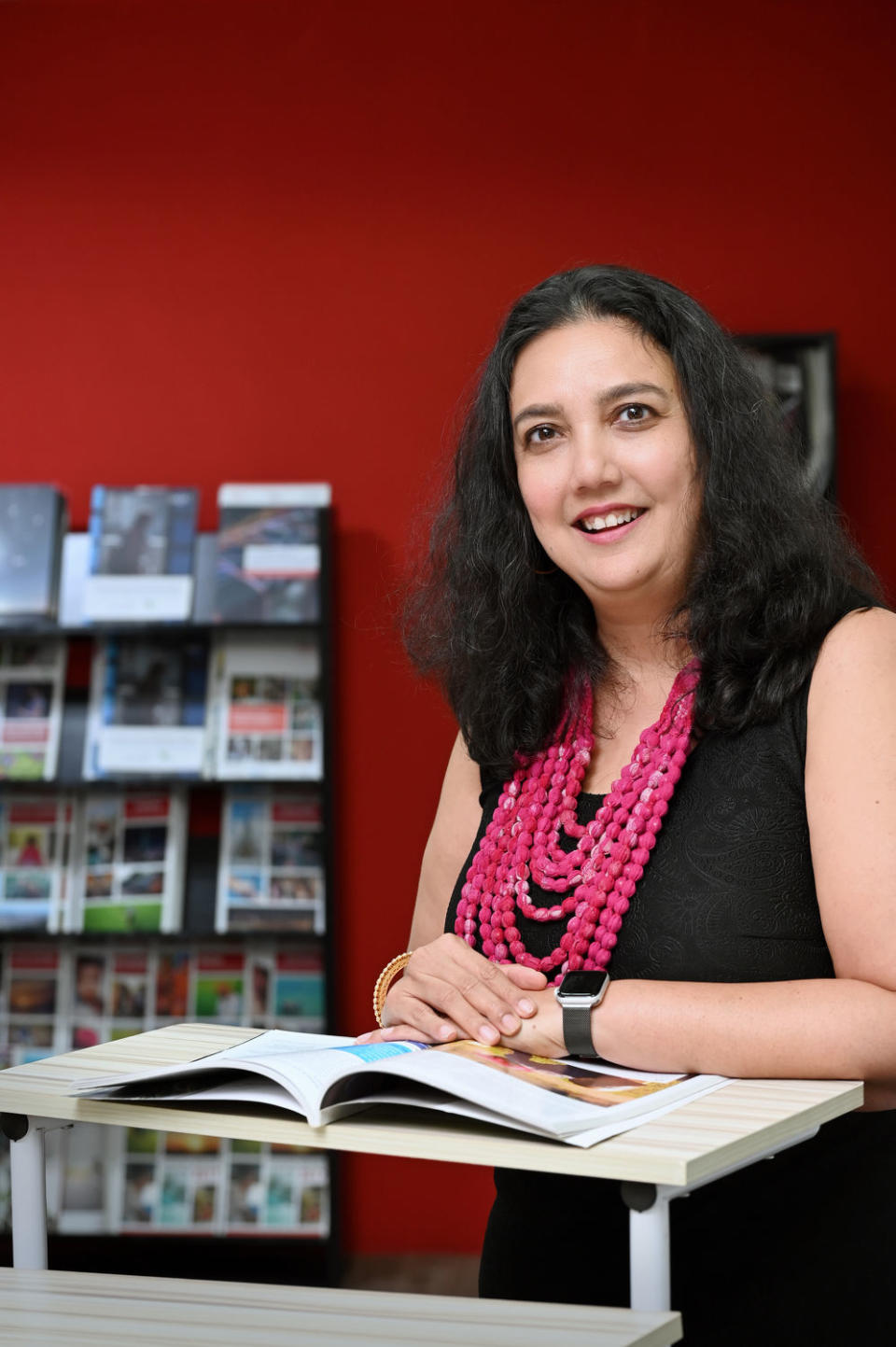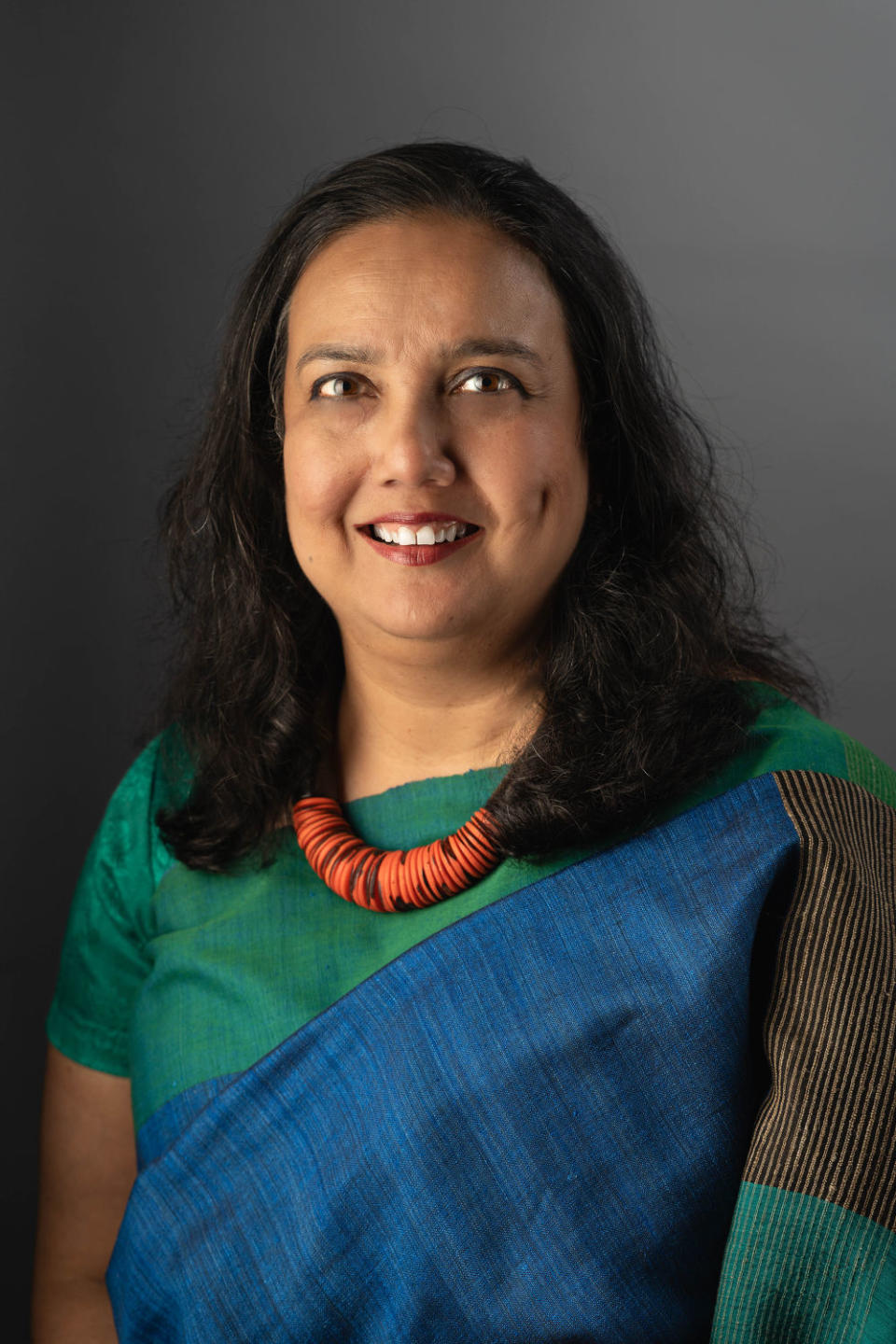AVPN CEO hopes to welcome faith-based givers into social investing, philanthropy

“Like Malaysia, like Indonesia, there is a huge amount of capital that is deployed each year with an Islamic lens.”
Faith-based givers are an overlooked group within the social investing and philanthropic space, says AVPN chief executive officer Naina Batra. In Singapore, particularly, this group is not often talked about, she adds.
“I really believe that this capital can do a lot of good if it is channelled,” says Batra to The Edge Singapore. “Traditionally, people are very wary of talking about faith. In Singapore, we are so concerned about how we maintain harmony, that we don’t really talk about it. But it’s really important, if we are to use that capital strategically, to do that.”
Speaking on the sidelines of the AVPN Global Conference 2024 in Abu Dhabi — the first time in 11 years that the annual conference has left Southeast Asia — Batra points to the United Arab Emirates’ (UAE) history of philanthropy.
“There is a huge history of giving in this part of the world, especially fuelled by belief, values and faith,” says Batra. “We are, in AVPN, increasingly looking at how we bring these faith-based givers into a similar platform and ecosystem.”
This is also seen closer to home. “Like Malaysia, like Indonesia, there is a huge amount of capital that is deployed each year with an Islamic lens,” says Batra. “We feel more and more of that can really be used strategically for impact.”
The UAE, like Singapore, has a multicultural community; nearly 90% of the UAE’s residents are expatriate workers. Batra notes “a lot of capital flow” from the UAE to South Asia and the Philippines. “How do we really bring them into the same discussion?”

West Asia
AVPN, the largest network of social investors in Asia with over 600 members, welcomed just 200 delegates in its first conference back in 2013, which was held in Singapore. Following a 2022 conference in Bali and last year’s iteration in Kuala Lumpur, this year’s three-day conference marks a farther leap to the UAE.
In a way, Batra believes the conference is still being held in Asia. “The idea to come to the UAE was really motivated by the fact that AVPN’s mission is to grow the ecosystem and really look at how we move more capital towards impact across Asia. West Asia is part of Asia, we don’t tend to recognise that we often talk about the Middle East, but really middle of what, and east of what? So, it is really a part of Asia.”
Batra says it is “crucial” to include West Asia for its strategic importance. “It occupies a pivotal geopolitical position, serving as a bridge between Asia, Africa and Europe. Its strategic location and abundant natural resources makes it a key player in global affairs.”
Of the 1,500 attendees, Batra estimates some 169 delegates flew in from Singapore, 50 from Malaysia, close to 100 from Indonesia, 50 from Australia and more than 250 from India. “It’s a lot of Asian representation and I think that also helps us feel we made the right decision. We’re not leaving anyone in Asia behind,” she adds.
The Abu Dhabi conference takes place under the patronage of Sheikh Theyab bin Mohamed bin Zayed Al Nahyan, chairman of the International Humanitarian and Philanthropic Council (IHPC).
The host partners — Reaching the Last Mile, the Khalifa Bin Zayed Al Nahyan Foundation and the Zayed Charitable and Humanitarian Foundation — also helped fund the proceedings between April 23 and 25.
We go where there is support, says Batra. “We are a non-profit platform and if we don’t get financial support, it’s tough for us to organise a conference of this size and scale.”
So, where would this bring next year’s conference attendees? According to Batra, “a number” of countries “keep approaching” AVPN to host their flagship conference in their country.
“At this point, we’re looking at potentially Northeast Asia, South Asia and Southeast Asia; so I don’t have a fixed answer,” says Batra.
She sees the merits of moving the conference around Asia. “By going there, we are able to mobilise that particular ecosystem in that country, but also shine a spotlight on the issues in that country and attract so many people.”
Many attendees this year are in the UAE for the first time, says Batra. “That's remarkable. So wherever we go, I think we’ll bring that along with us.”

Representing Asia
In addition to her decade leading AVPN, Batra has joined a number of international boards on social investing. In November 2023, she joined the SDG Impact Finance Initiative as an advisory board council member.
Launched in December 2021, the SDG Impact Finance Initiative is a public-private partnership between the Swiss State Secretariat for Economic Affairs (SECO), the Swiss Agency for Development and Cooperation (SDC) and the UBS Optimus Foundation.
The Initiative aims to support blended finance to meet the United Nations’ Sustainable Development Goals (SDGs). Created in 2015 by the UN General Assembly, the 17 SDGs are designed to serve as a “shared blueprint” for peace and prosperity, for people and the planet — with a 2030 target deadline.
The problem — according to Batra — is how everybody is talking about blended finance, but they are “not very clear” what blended finance actually means.
In the blended finance structure, concessional capital, often from the public sector, helps attract private capital into marginally-bankable projects, which are often deemed risky or less profitable.
At COP28 in December 2023, Singapore launched the Financing Asia’s Transition Partnership (Fast-P), an Asia-focused blended finance initiative that aims to mobilise up to US$5 billion ($6.67 billion) for green and transition projects.
In addition to creating awareness about blended finance, the Initiative also looks at scale. “How do we attract more capital? We’ve been looking at blended finance projects — they’re not really very large in scale, they’re usually $1 million to $5 million,” says Batra. “But again, with a gap, you need to have much more. So, the idea is how do we bring more concessionary capital that can de-risk more commercial capital to come in? That’s the goal.”
To Batra, her role, as the only Asian representative in the Initiative, is to spotlight Asia. “Like so many initiatives, this one also originated in the West… I join these things because I feel like it’s crazy, right? [Asia is home to] 60% of the world’s population, and we’re not represented.”
Batra hopes to offer a crucial Asian perspective. “People usually bake these ideas and then come and try to sell them in our part of the world. So, it’s much more [important] to have a voice in the design and really talk about our challenges, rather than somebody sitting in Switzerland saying: ‘Oh, this is what you need.’”
Photos: Albert Chua/The Edge Singapore, AVPN
Learn more about impact investing and philanthropy:
Investing for impact? Learn these lessons from ESG investing
‘Strong storytelling, clear visual aids’ help ABC Impact explain impact of investments
T Rowe Price’s Global Impact Equity Fund seeks returns and measurable impact
Don’t conflate investing in activity with actual impact: UBS philanthropy head
AVPN launches social investing system ImpactCollab with MAS support
See Also:
Click here to stay updated with the Latest Business & Investment News in Singapore
AVPN launches social investing system ImpactCollab with MAS support
AVPN Global Conference debuts in Middle East with three-day social investing programme
Investing for impact? Learn these lessons from ESG investing
Get in-depth insights from our expert contributors, and dive into financial and economic trends

 Yahoo Finance
Yahoo Finance 